These 4 Gut-Friendly Sweeteners Satisfy Your Sweet Tooth Without the GI Upset
When it comes to your health, your gut plays a bigger role than you may realize. Scientists are only just starting to understand the gut microbiome, a complex collection of microbes that live in your digestive tract. Besides aiding in digestion and nutrient absorption, the delicate ecosystem of good and bad bugs helps regulate your immune system, eliminate waste, tame inflammation and assist with various vital functions. The hitch: For some people, certain artificial sweeteners may disrupt the gut microbiome and trigger GI upset. Here, we break down how to tell if you might be sensitive to artificial sweeteners, plus reveal the four best gut-friendly sweeteners experts recommend.
Artificial sweeteners are incredibly common
Artificial sweeteners, which taste 100 to over 700 times as sweet as sugar, are increasingly popular. They can be found alone or blended with other sweeteners in everything from yogurt to bread to oatmeal to protein bars. In fact, you're likely regularly consuming foods that you don’t even realize include artificial sweeteners.
The FDA has approved six food additives that are used as sweeteners: acesulfame K, advantame, aspartame, sucralose, neotame and saccharin. Stevioside and rebaudioside A (derived from stevia plants) and Siraitia grosernorii (monk fruit extract) are categorized at Generally Recognized as Safe (GRAS). (See how a beneficial sweetener known as allulose aids weight loss.)
Other substitutes make up a milder class of sweetener: sugar alcohols. Neither sugar nor alcohol, these low-calorie substances include sorbitol, xylitol, lactitol, mannitol, erythritol and maltitol. They're between 25% and 100% as sweet as sugar and are often found in sugar-free candies or gum. While they’re technically naturally-occuring, most sugar alcohols in packaged foods are manufactured. For many people, sugar alcohols are slow to digest and can cause gas and bloating.
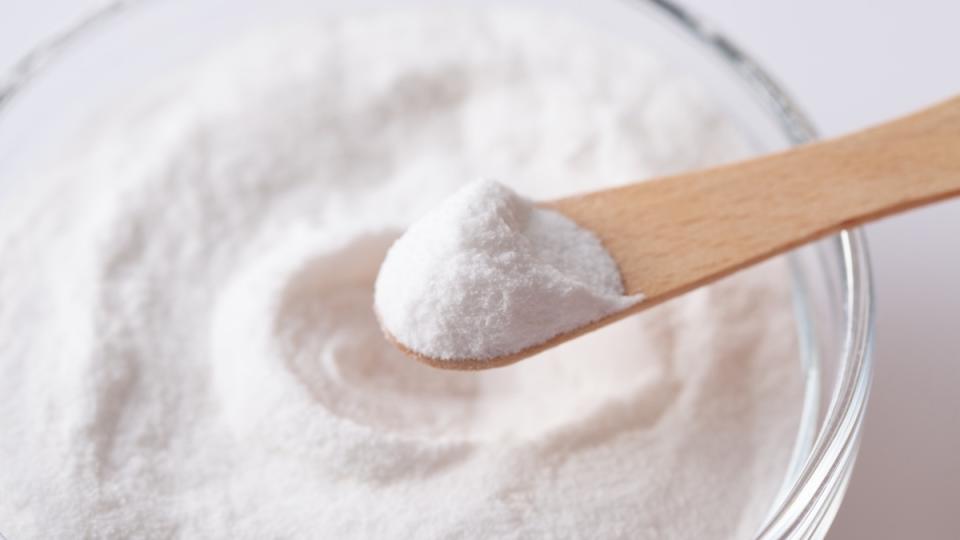
EKramar/Getty
The problem with artificial sweeteners
“There is a suggestion — not a smoking gun — that they may contribute to alterations in the gut microbiome that are not favorable and can contribute to a more inflammatory environment,” explains dietitian Tamara Duker Freuman, MS, RDN, CDN.
Critics are concerned that the chemical substances, known as artificial or non-nutritive sweeteners (NNS) because they deliver no calories or nutrients, may change the makeup of the gut microbiota. In turn, this may lead to high blood sugar or glucose intolerance. The research on the effect of NNS on the gut microbiome is mixed.
Sometimes called the “second brain,” the gut helps control thermoregulation, energy metabolism, fat storage, appetite and inflammation. The gastrointestinal tract also shares information with the central nervous system and can impact your mood and stress response. The brain-gut access refers to this connection — the way the brain and gut communicate. Anything that alters the balance, diversity or function of the gut microbiome can impact your health.
“Each person’s microbiome is individualized from birth based on genetics, environment, your overall diet, eating fermented foods, medications and age," adds registered dietitian Libby Mills, RD. "It is difficult to know how each person’s microbiome will be affected by eating non-nutritive sweeteners."
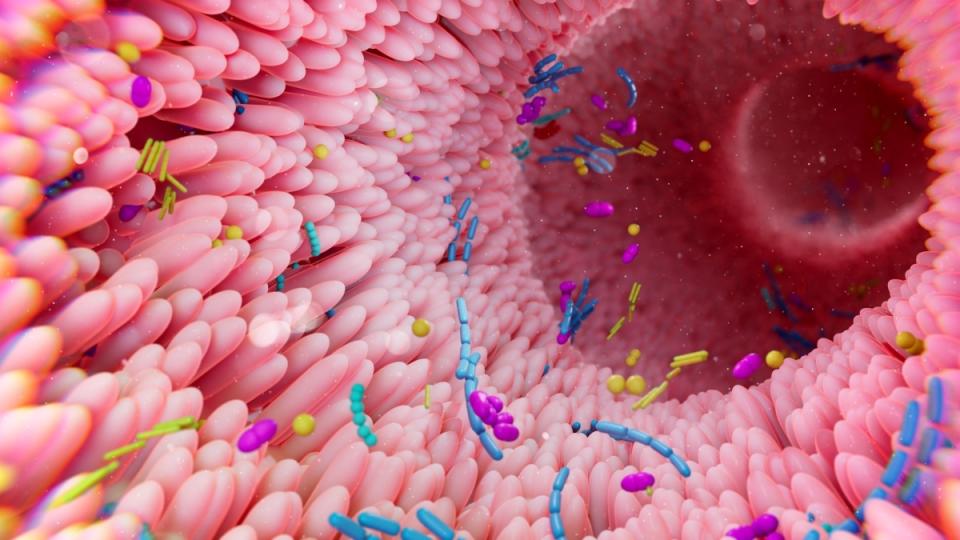
THOM LEACH/Getty
In brief, there are suspicions that NNS may disrupt GI health in three ways:
They upend the healthy balance of good and bad germs in the microbiome
They interfere with gut and brain communication
They change a person’s preferences for sweetness, potentially affecting appetite and body weight
Should you switch to gut-friendly sweeteners?
Keep in mind that everyone’s health history, microbiome and taste differs. “In general, I try to steer people away from habitual intake of certain artificial non-nutritive sweeteners, especially sucralose and saccharin," says Freuman. "That's due to concerns around their impact on the gut microbiome, specifically with respect to risk of developing Inflammatory Bowel Disease (IBD)."
An estimated 10 to 15% of people in the US experience IBD, an umbrella term for types of chronic gastrointestinal inflammatory conditions such as ulcerative colitis and Crohn’s disease. In recent years, the prevalence of these conditions have been rising significantly.
“There is some limited evidence in mouse models suggesting that saccharin, Acesulfame K and sucralose may all deplete the reservoir of a very beneficial species called Akkermansia muciniphilia, which has been linked to a protective effect against metabolic dysregulation [such as weight gain and Type 2 diabetes],” Freuman explains.
Another critique: Some people doubt that NNS are useful for weight loss, and that the health risks may outweigh the benefits. In fact, the World Health Organization warned against their use for weight loss in new guidelines. Their research suggests ongoing consumption of some non-sugar sweeteners may increase the risk of cardiovascular diseases and type 2 diabetes.
Related: Nutrition Pro: Hidden Food Sensitivities May Stall Weight Loss — This Gut Healing Diet Can Help
Signs you may benefit from a gut-friendly sweetener
“You can’t see what is going on with and inside our gut," Mills says. "But when your gut health is off, you can experience heartburn, intestinal distress, elimination issues like diarrhea or constipation and less expected symptoms such as fatigue, skin conditions and autoimmune issues." Mills stresses that it is important to talk to your doctor about any changes in your health, such as:
Changes in bowel movements
Gas, bloating, discomfort or painful cramping
Worsening symptoms of other health conditions
Elevated blood sugar
Changes in energy and strength
Weight gain or weight loss patterns
Tingling pain in hands and feet

In general, those with IBD, some folks who are undergoing bariatric surgery or those with the rare genetic disease phenylketonuria (PKU) should avoid NNS. The bottom line: Don’t go nuts about sweeteners. “Sugar is sugar," says Freuman, who is also the author of Regular and The Bloated Belly Whisperer "A little bit adds sweetness to life. Too much is too much, no matter where it comes from.”
Related: Top MDs Reveal the 10 Best Foods to Eat For Gut Health
The 4 best gut-friendly sweeteners
Help keep your microbiome — and your health — robust with these gut-friendly sweeteners.
1. Stevia or monk fruit extract
If someone is looking for a non-caloric sweetener for habitual use, “I tend to steer them toward Stevia or monk fruit extract” Freuman says. Both gut-friendly sweeteners are naturally derived from plants and come without calories or carbs. Note: Some brands of natural sweeteners may add in NNS. “I don’t recommend Truvia, which has erythritol and can be difficult to tolerate digestively for some,” Freuman explains.
And in happy news, a unique compound in monk fruit called mogrosides keeps cholesterol levels in check by curbing inflammation. “The body sends cholesterol to areas of the body with the most inflammation to clean up the mess,” explains Fred Pescatore, MD. “So, when you lower inflammation, you naturally lower cholesterol.”
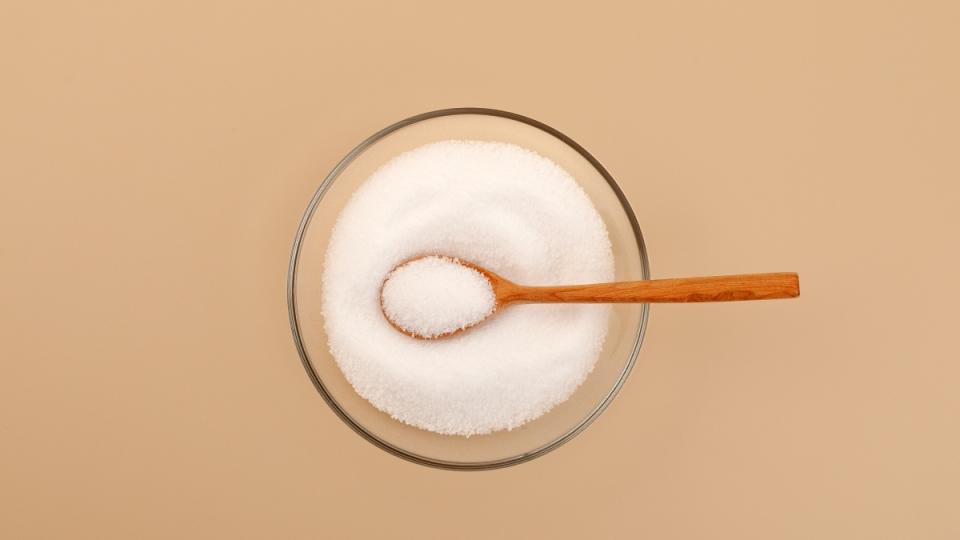
2. Sugar (reduced)
Cutting back on sugar helps satisfy your sweet tooth without disrupting your gut health. “When I bake, I use real sugar, and often less of it than the recipe calls for — 25% or 30% less,” notes Freuman. She adds that cutting back on the sugar that most recipes call for still has them tasting sweet enough for her. Try gradually reducing the amount of sugar you normally add to your coffee or tea to allow your taste buds to adjust over time.
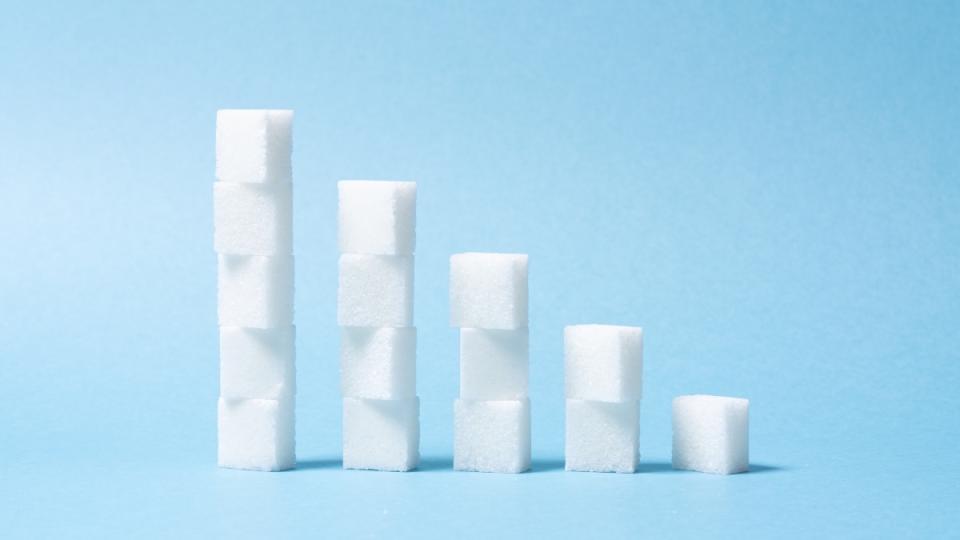
3. Honey or maple syrup
Natural gut-friendly sweeteners such as honey, maple syrup, molasses and fruit juice contain calories but also deliver beneficial vitamins, antioxidants and minerals. For example, honey and maple syrup have antioxidant and anti-inflammatory properties. And molasses delivers calcium, iron and magnesium without spiking blood sugar.
“Natural sweeteners such as honey and maple syrup may be less disruptive to gut bacteria compared to non-nutritive sweeteners,” says registered dietitian nutritionist Vandana R. Sheth, RDN, CDCES, FAND. “In moderation, they may offer some potential benefits due to their nutrition profile and potential prebiotic effect. But natural sweeteners can contribute to excess sugar intake if not moderate,” she cautions.
According to the latest Dietary Guidelines, an average adult woman should limit added sugars to no more than 10% of her daily calories. If you're eating 2,000 calories a day, 2 tsp. of honey would deliver about 130 calories, more than half a day’s allowance. (See the health benefits of raw honey.)
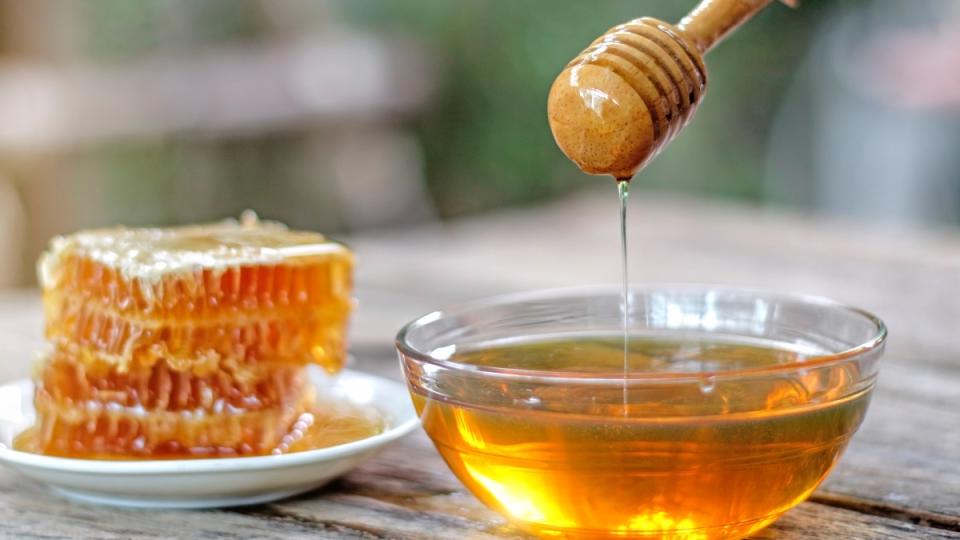
4. Whole fruits
Experiment with applesauce, mashed banana or date butter in baked goods, on oatmeal or spread on toast. Dried fruits, such as raisins or prunes, can be made into a paste. While fruits deliver calories, they’re also gut-friendly sweeteners packed with nutrients such as potassium, calcium and fiber. “Fibers of all types are beneficial for gut health, so these all-fruit spreads would be marginally better than fiber-less natural sweeteners,” explains Mills.
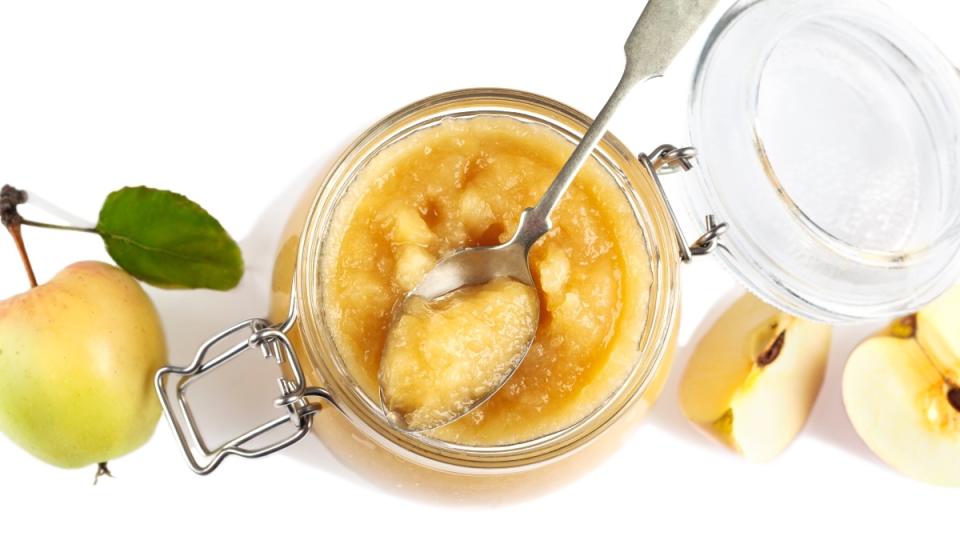
For more ways to nourish your gut health:
Top MDs Reveal the 10 Best Foods to Eat For Gut Health
Nutrition Pro: Hidden Food Sensitivities May Stall Weight Loss — This Gut Healing Diet Can Help
This content is not a substitute for professional medical advice or diagnosis. Always consult your physician before pursuing any treatment plan.

